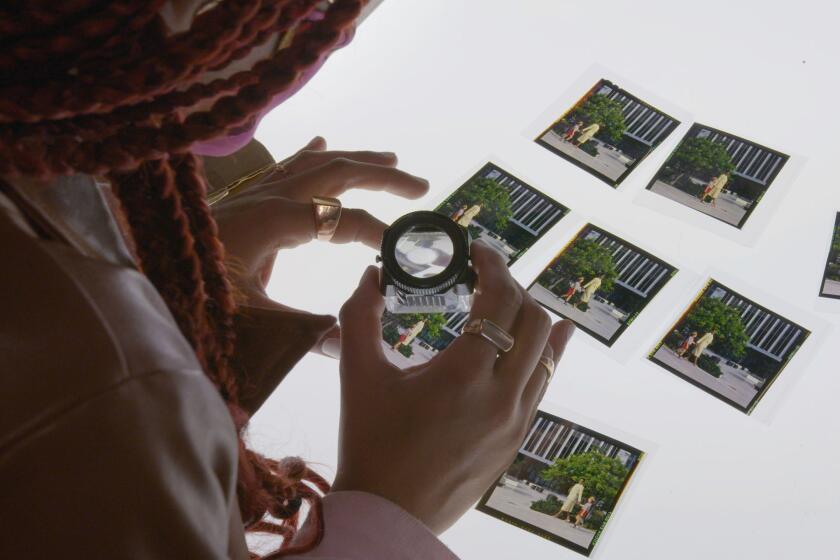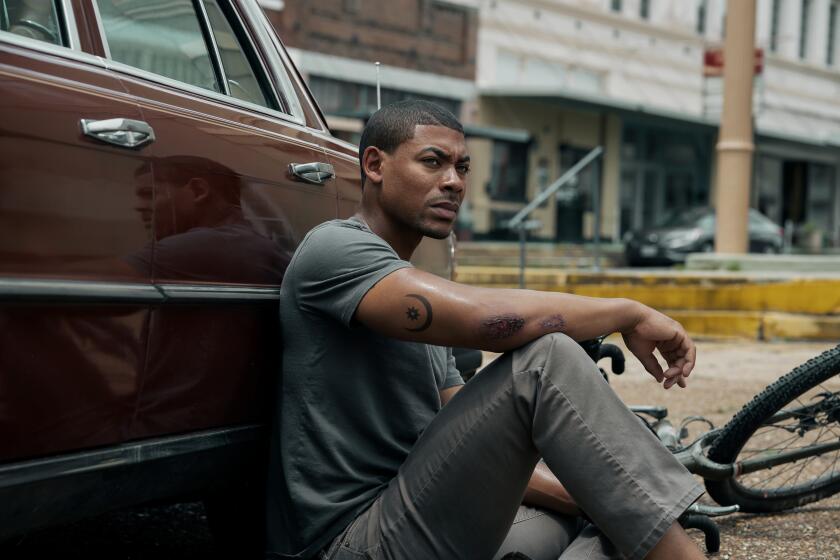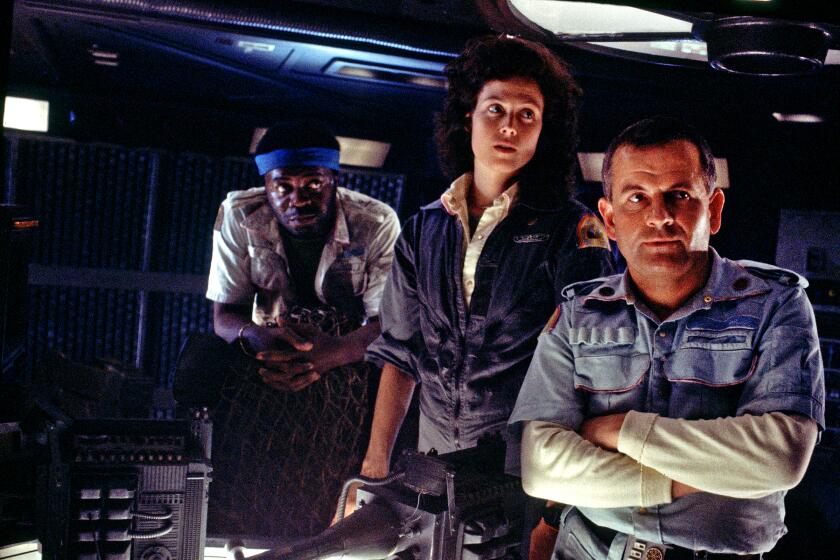‘Lights’ and ‘Shadows’: Movies Oscar forgot but you will remember
Now that we’re past the Oscars — remember them? — this might be a good time to sift through the rubble and recall that they are a specific set of awards given out by a specific set of people rewarding a specific kind of movie. It should go without saying that there are plenty of great films that don’t make much impact in awards season that will nevertheless be discovered and/or remembered for years to come.
What determines the life of a movie? Timing, luck and marketing are only a few reasons a certain movie may land with audiences in a certain way at a certain time. With diverse distribution strategies and the long tail of home video platforms, many movies can now find their way well beyond opening-weekend receipts or the awards-season spotlight.
A pair of movies that have perhaps not received the attention they fully deserved but which people will likely be talking about for some time to come are “Beyond the Lights” and “What We Do in the Shadows.” The first is an old-fashioned romantic melodrama set in the world of contemporary pop music and the other is a faux-documentary following a group of vampires in Wellington, New Zealand. They really couldn’t be more different, but they both will live on, likely picking up acolytes as time moves on.
These are films that people largely respond well to once they do see them, highlighting the challenges of simply getting good movies in front of audiences.
“Beyond the Lights” follows Noni (Gugu Mbatha-Raw), something of an up-and-coming Beyoncé/Rihanna stand-in, as she falls for Kaz (Nate Parker), an L.A. police officer who just may save her from herself. Minnie Driver puts in a fine performance as Noni’s mom-ager, and the push-pull between caring for her daughter and overseeing her career provide a strong dramatic current throughout the story, building to a powerhouse confrontation.
The film got lost in the crush of fall releases, though it did earn strong critical praise and an Oscar nomination for original song. Written and directed by Gina Prince-Bythewood, “Beyond the Lights” was recently released on Blu-ray in a director’s cut that, while not a radical revision as with Ridley Scott’s ill-fated “The Counselor,” does give the film back some added bite.
Prince-Bythewood has a real gift for capturing a tactile sense of bodies in space, creating moments that are truly sensual that make it seem you could reach out for the characters yourself. A scene in which Noni takes Kaz onto a private jet for the first time, set to Beyoncé’s “Drunk in Love,” plays as an immediately classic sex scene. The moment is made all the sexier for how unexplicit it is, though the director’s cut version is a bit steamier.
There was a recent screening of the theatrical version of “Beyond the Lights” for local high schoolers as part of the Pan African Film Festival. Prince-Bythewood came out after the movie for a Q&A and at one point made reference to her 2000 debut feature, “Love and Basketball.” A ripple of excitement swept through the young audience at the reference to a film they seemed to revere even though it was released when some of them may have just barely been born.
The response of those schoolkids is all the proof one needs that a movie can have a life and find an audience well after its initial release. More than ever before, more movies are available more readily to more people. And that can only be seen as a good thing. Whether “Beyond the Lights” will live on in the same way has yet to be seen, but it certainly deserves to be found.
In conversation Prince-Bythewood conveys the same unassumingly low-key authority as her filmmaking. Just after that screening she said, “You just hope you’ve made the film you wanted to make and it’ll be accepted. As an artist, if I hated what’s up there and what has happened, I’d be a wreck because at some point I gave in. But I didn’t give in on this one. This is a film I’m proud of.
“‘Love and Basketball’ wasn’t a huge hit when it came out,” she added, “but years later people are talking about it. If I have that, then I’m good.”
“What We Do in the Shadows” is rolling out to theaters across the nation thanks to a spirited crowdfunding campaign by its makers. A true oddity, it’s actually a movie almost better served as something you find on your own. Once upon a time in a bygone media environment it would have been enthusiastically passed around on VHS or disc, making converts with each handoff.
Written and directed by Taika Waititi and Jemaine Clement, who also star, the movie positions itself as a documentary on a small band of vampires sharing a house as they deal with the minute ins-and-outs of their lifestyle. Pleasantly offbeat and charmingly outlandish, the film grapples with practical issues of people being hundreds of years old and undead, the day-to-day etiquette and mundanity of vampires, werewolves and roommates alike.
“What We Do in the Shadows” is modulated in a pitch-perfect way, loose and freewheeling while subtly tilting toward an emotional melancholy that makes it more than just a series of strung-together gags. It is such a purely pleasurable film that it’s easy to imagine viewers, in whatever format or platform, finding it a surprising delight for years and years to come.
To return again to the Oscars, when accepting his award for director, Alejandro G. Iñárritu noted that it’s a pity the diverse and dynamic films all nominated had to be pitted in competition against one another, as together they are avengers of the art house and multiplex alike against the forces of soulless, quick consumption. And most fittingly, he spoke of what makes movies really last.
“The paradox is that true art, true individual expression — as all the work of these incredible fellow filmmakers — can’t be compared, can’t be labeled, can’t be defeated,” said Iñárritu. “They exist and our work only will be judged, as always, by time.”
Follow on Twitter: @IndieFocus
More to Read
Only good movies
Get the Indie Focus newsletter, Mark Olsen's weekly guide to the world of cinema.
You may occasionally receive promotional content from the Los Angeles Times.










